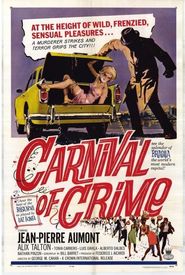In 1927, at the tender age of 18, she was elected the coveted title of Miss Ipanema, a prestigious honor that marked the beginning of her illustrious career. Two years later, in 1930, she released her first album, a groundbreaking achievement that showcased her remarkable talent as a singer-songwriter. This initial album featured several original compositions, including the iconic songs "Moreno, meu bem" and "Coco de Pagu", which she wrote in collaboration with Henrique Vogeler. Over the next two years, she would go on to record an impressive eleven albums, boasting an astonishing twenty-two original songs, the majority of which were her own compositions.
As her music career flourished, she also ventured into the world of theater. In 1932, she made her debut on stage alongside the renowned actor Paulo Gracindo in the musical revue "Plaquette", directed by the talented Henrique Pongetti and produced by Francisco Pepe, brother of the renowned Raul Roulien.
In 1933, she tied the knot with William Melniker, a lawyer and the managing director of Metro-Goldwyn-Mayer for South America, in a private ceremony.
In 1939, she made her mark on the international stage by participating in one of the first NBC TV broadcasts in New York, captivating audiences with her rendition of Tchaikovsky's works. Later that year, she was hired by NBC radio and relocated to Los Angeles, where she was cast alongside the dashing Tyrone Power in the film "Blood and Sand" (1941). Unfortunately, a controversy surrounding a producer at Victor Hugo's Restaurant brought her Hollywood career to an abrupt halt, and Rita Hayworth was subsequently cast in the role of 'Doña Sol'. Her first film credit would ultimately come in Brazil, in the early 1940s.
Throughout her remarkable career, she appeared in over 80 plays, and her final performances on stage took place in 1978 and 1985, respectively, in Rio de Janeiro's Teatro Mesbla, where she starred in Anthony Marriott's "No Sex... Please!" (based on the 1971 British play "No Sex Please, We're British") and João Bethencourt's "Frank Sinatra 4815".













